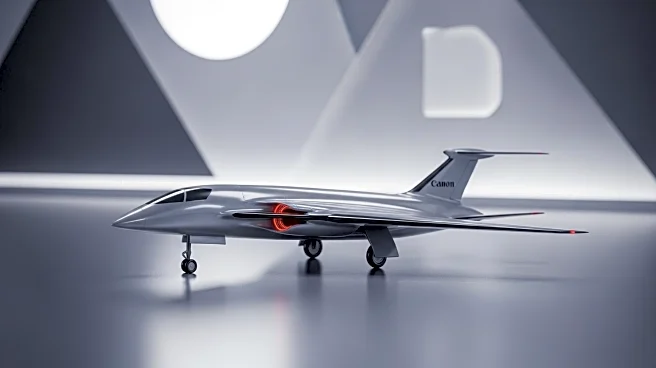What is the story about?
What's Happening?
The United States and European Union have reached a new trade agreement reinstating the zero-for-zero tariff framework for aircraft and aircraft parts. This agreement, announced by the White House, exempts these goods from tariffs, reversing a previous proposal by the Trump administration to impose a 30% tariff on EU aerospace imports. The exemption is retroactive for goods entered into the U.S. on or after September 1, 2025. Industry trade groups have welcomed the agreement, which is expected to foster innovation and job growth in the aerospace sector.
Why It's Important?
The reinstatement of zero tariffs on aircraft and parts is crucial for the U.S. aerospace industry, which relies heavily on transatlantic supply chains. The agreement alleviates concerns over trade imbalances and national security, allowing for continued collaboration and innovation between U.S. and EU aerospace companies. This move is likely to enhance competitiveness and economic growth in the sector, benefiting manufacturers, suppliers, and workers.
What's Next?
Importers must continue to comply with U.S. importation procedures, including documentation with Customs and Border Protection and adherence to Federal Aviation Administration regulations. The agreement does not cover Swiss-origin aircraft and parts, which remain subject to U.S. tariffs. Stakeholders may seek separate agreements to address these exclusions, and ongoing negotiations could further shape trade relations between the U.S. and EU.
Beyond the Headlines
The trade agreement highlights the complexities of international trade policies and their impact on global industries. It underscores the importance of diplomatic negotiations in resolving trade disputes and fostering economic cooperation. The aerospace sector's reliance on international supply chains may prompt further discussions on trade policies and their implications for national security and economic stability.

















